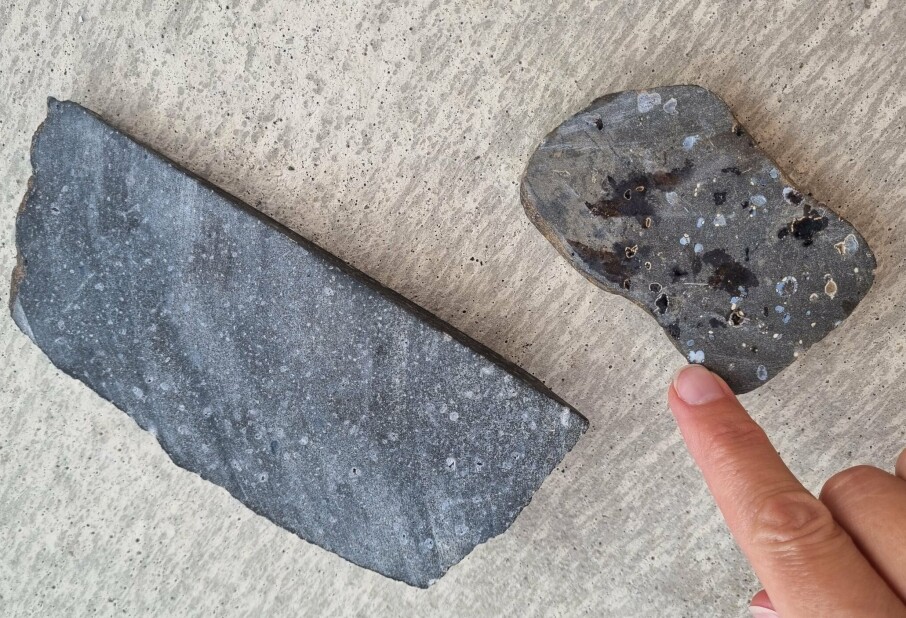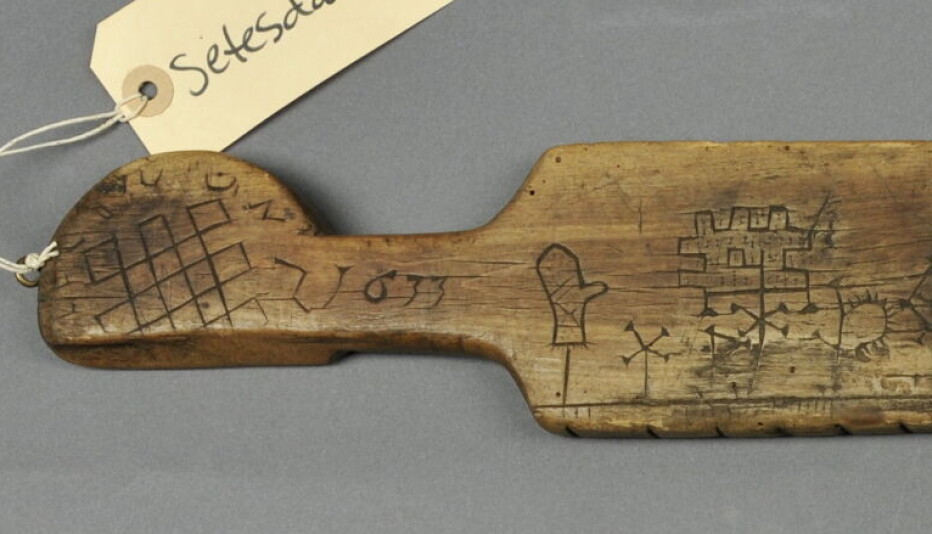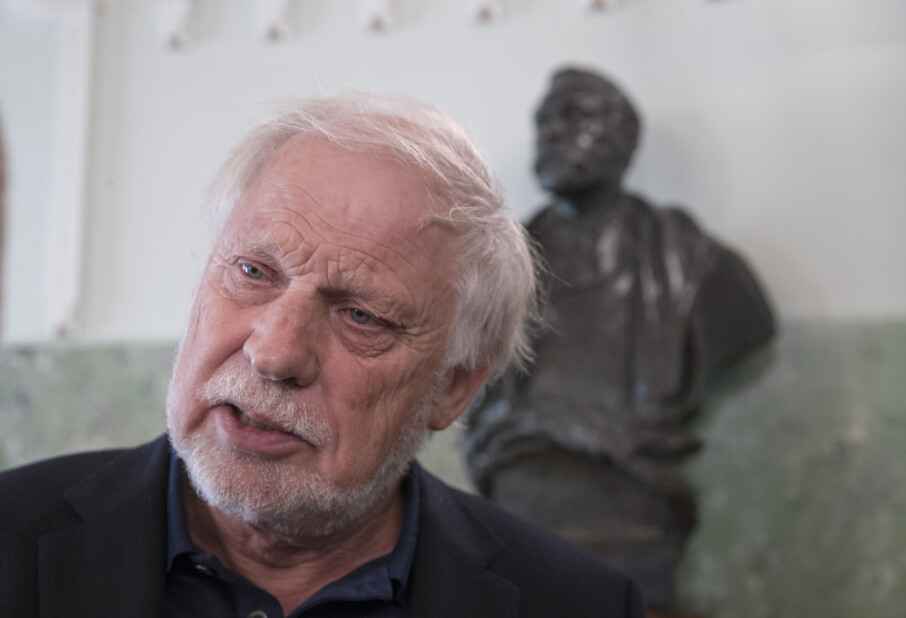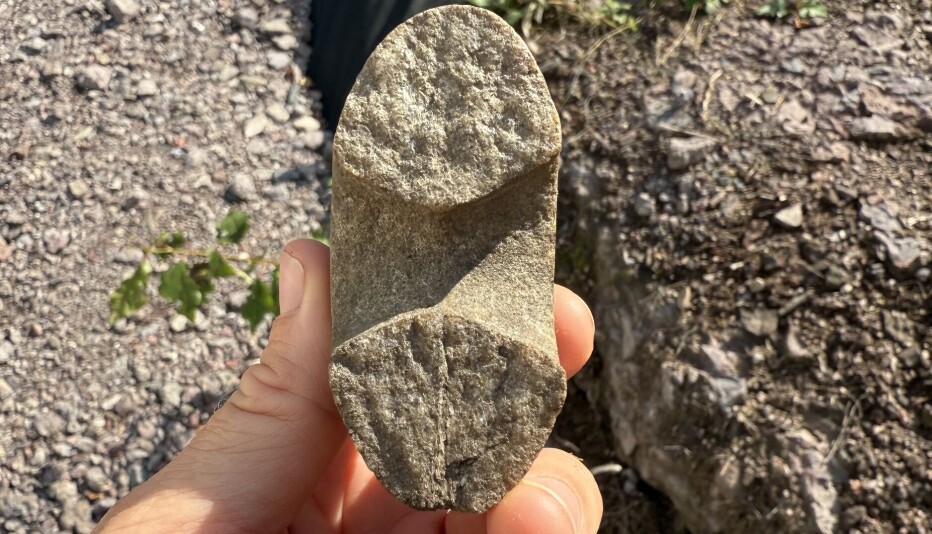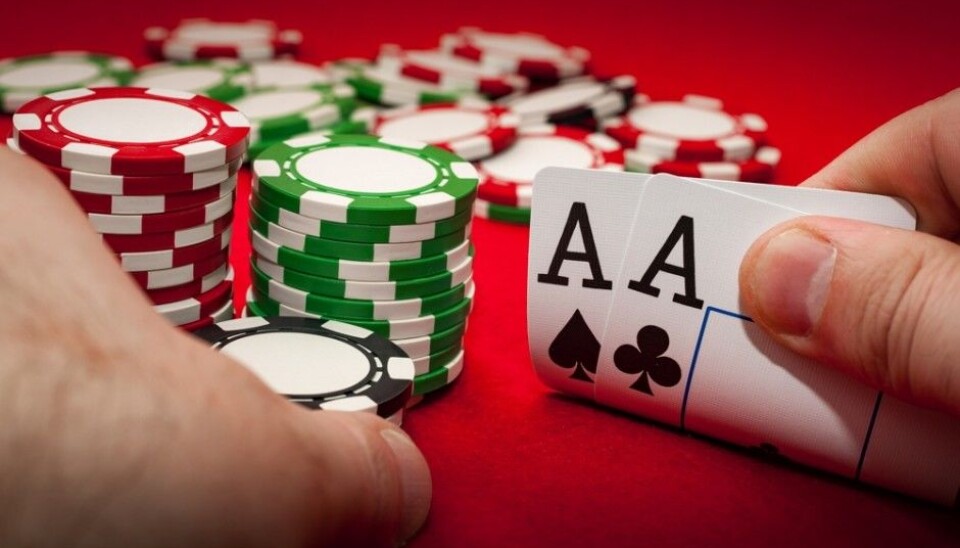
Poker players aren’t like other gamers
Poker is a game played primarily by boys who get good grades in school. It’s an intellectual martial art, according to a researcher.
Elite athletes do it. Glamour models do it. They play poker and they talk openly about it.
But far more poker players don’t. Most of them sit in the poker room and keep their activity well hidden.
Making a living by playing poker is contrary to the Nordic work ethos. It’s seen as "dirty work,” according to the first Norwegian to earn a PhD in poker.
Doctor of Poker
Niri Talberg plays poker himself. But recently he’s mainly applied his interest in the game to an academic context.

In 2008, Talberg used his master's degree in pedagogy to write about poker players. Now he has also earned a doctorate on the subject.
He has always been fascinated by games.
When visiting his grandfather as a child, Talberg liked finding things to do, so he was allowed to study the weekly sports lottery coupons.
He recounts that he eventually persuaded his father and grandfather to let him purchase eight half-hedges. That resulted in all twelve of Talberg’s picks going the way he expected – for the first (and last) time in his gambling career, he says – and 1700 Euros going into his bank account, a huge amount of money for a ten-year-old at the time.

“That feeling of winning ignited something in me,” he says.
Lots of skills involved
When Talberg started playing Texas Hold 'em poker, a new game world opened up for him.
"I immediately saw how many skill elements the game involved. It's a lot about recognizing the opponent's playing style. It's about the statistics of it. The size of the bids, how much you can get the opponent to pay when you have a good hand and how you can manage to keep the pot low if you’re unsure of your hand. The game involves a lot of probability assessments,” he says.
Talberg is currently employed by the Fafo Institute for Labour and Social Research in Oslo. He believes most people – including researchers who have studied poker – underestimate the skills involved in the game. He has found that a lot of the research on the game condemns it, or is problem-focused.
Poker players have as much expertise as professional chess players and former athletes, but it isn’t appreciated in the same way, he says.
Keeping poker hidden
“If you tell people you make your living from poker, many of them think it's a game that's mostly about luck. They don’t have respect for the skills poker players can have. That's why in the past a lot of players tended to be vague and secretive about how they earned their money,” says Talberg.
Today, players are a lot more open about playing poker. Talberg thinks this change has created great potential for learning in the game.
“Players who earn good money are still often suspected of selling drugs or of other crimes," he says. He believes this scepticism also has to do with how poker is organized.
Norway doesn’t have casinos, which most other countries in Europe have allowed. Poker games for money were illegal until 2015, but poker clubs have existed in Norway since the 1970s. Some of these have been linked to criminal activity.
"If we’d had poker clubs with tournament poker that was regulated in a sensible and responsible manner in Norway, I think that would have been good.
Less to do with luck
According to Talberg, professional poker games are far from just being about luck.
How players pick up their poker skills was precisely what interested him as he wrote his doctoral thesis on the pedagogy of the game.
In his Master’s thesis, Talberg collected questionnaires from four secondary schools.
He was surprised to find that the students with good marks in tenth grade were the most likely ones to play poker. That wasn’t the case when he replaced poker with computer games, chess and other games.
Research on computer games shows that it’s often boys with poor grades who play the most. The poker players stood out as some of the brightest boys in their class.
For his doctorate he analysed these questionnaires again. In addition, he interviewed fifteen poker players to get more in-depth knowledge of what they do to become better players and how the game has influenced their educational choices.
Talberg categorizes four of the fifteen interviewees as young professionals who chose poker over education. He also interviewed three players who have been playing for a while and eight amateur players.
The game vs. education
Parents or other adults organize most after-school activities today. Poker is an exception.
Young people organize their own playing and have to organize the learning processes themselves, says Talberg. “I think that's exciting,” he says.
Poker training is a big industry. Talberg found that young people who want to learn to play poker use a lot of online tutorials.
"People who do this for their living spend a lot of time on it,” he says.
But good results in poker games can quickly have negative consequences for young people's education.
In poker you won’t get very far as a mediocre player. But to get good, you have to invest a lot of time in the game.
“It’s like an arms race – because you’re completely dependent on being better than the others,” Talberg says.
He has seen many poker players struggle to combine their interest in the game with not only their education, but also with having a girlfriend and doing other things.
He’s also noticed that only a very few want to be old poker players. "They want to be done with it – as soon as they’ve earned enough money."
But the way back to another life is often long. Once you have a gap in your CV, you can’t tell a possible employer what you’ve been up to, so you hang on a little longer. And that way, you may also escape a society that condemns your activity.
Doing nothing
In today's Norway quite a few young people are completely unengaged in either education or work. Talberg is convinced that many of them spend a lot of time playing computer games.
Some of them live their lives doing what were previously considered play and leisure activities. Some live from blogging or other social media. Some do sports.
Some play poker. And some make money on producing entertainment or tutorial videos about computer games and poker.
"It's hard to know how common this is. Few people are willing to talk about it,” Talberg says.
Talberg believes that if playing poker becomes a less taboo topic, then it may be easier to recognize that there are some big players who have big holes in their résumé. This can make it easier for them to make the shift to education and work.
"If you’ve been a top-level chess player, you can tell an employer what you've been doing and be recognized for it. A lot of poker players have learned things they can put to good use in other areas of society. They’ve learned to assess risk, keep a cool head and work systematically, for example. They also have a lot of digital skills that can be transferred to other areas,” he says.
“If you make a comparison with a former top soccer player, I think a professional or semi-professional poker player has more skills that are relevant for society and work,” he adds.
Danger of becoming the informants’ defender?
Talberg considers what it means for his objectivity as a researcher that he has been – and to a certain extent still is – a poker player.
"I couldn’t have done my doctoral research without having an in-depth knowledge of poker myself. But it can also be a possible source of error because I run the risk of defending the people I’m researching. So yes, I may err on the side of being too uncritical of the truths of living in a poker player’s world,” Talberg says.
Do poker players become rich?
Talberg still plays poker, but not as much as before.
"When I was a student, I played poker to make a little extra income. The playing level was lower then. Now the players are much more experienced. They use more training tools. The level has gotten so high now that it isn’t easy to be an amateur anymore,” he says.
One of the informants told Talberg that he regretted not having dropped out of school to focus on poker. He was both studying and playing poker and wasn’t really good at either.
Talberg believes that if you are a good poker player in Norway, you can earn a reasonably good yearly income from it. The best players he interviewed have earned over 500 000 Euros playing the game.
"But there aren’t many of them," he points out.
-----------------------------------------
Read the Norwegian version of this article at forskning.no.











